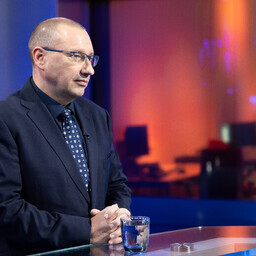Isamaa and the Reform Party agreed that they will use all legal means to prevent the creation of a united Tallinn hospital. Isamaa's Tartu representative Tõnis Lukas says that Tallinn can merge its hospitals, but the state's North Estonia Regional Hospital should not be merged with Tallinn Hospital. Lukas says this would create a monopoly, concentrating 65% of all healthcare analyses. This would threaten regional balance.
Lukas adds that the united hospital would become so economically strong that it would be easy to concentrate specialists there. However, this could threaten the continuation of medical education at the University of Tartu. Lukas asks where future doctors will be trained if the competition favors Tallinn.
Although the population in South Estonia is decreasing, the head of the clinic, Priit Perens, says that the lack of patients does not affect the education of medical students. Perens says that the population of Tartu and South and East Estonia is sufficient to continue high-level research.
Perens adds that the clinic is against merging all Tallinn hospitals. Because then nearly half of Estonia's specialist care would be concentrated there. Perens says the hospital would become so large that the Health Insurance Fund would no longer be able to control its activities. The hospital would start controlling the Health Insurance Fund's activities.
The head of Tallinn Hospital, Arkadi Popov, does not understand why Tartu is concerned. Because within the next five years, East and West Tallinn Central Hospital and the Children's Hospital will be merged. Popov says that after some time, PERH may also join, and Tallinn Hospital's capacity will grow. Popov says that in the future, it may be possible for medical students to complete their clinical training in Tallinn as well.
Medical students believe that preclinical education should remain in Tartu. But they could complete their clinical training in Tallinn. The president of the Medical Students' Society, Kadri Liis Laas, says that Tartu already has strong competence. But clinical training from other hospitals would make them future professionals.

